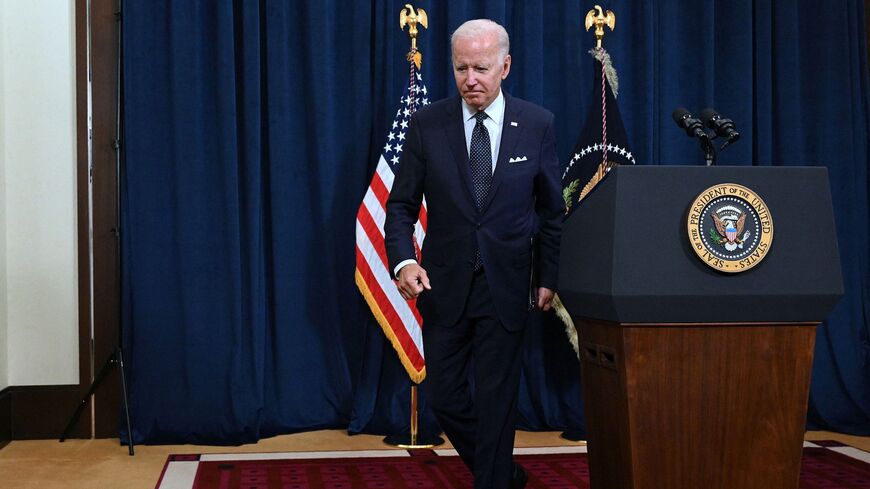The Biden administration has determined that Saudi Crown Prince Mohammed bin Salman has legal immunity in a civil case brought against him over the murder of journalist Jamal Khashoggi, a move likely to reinforce the criticism that President Joe Biden has backed down from his campaign pledge to hold Saudi Arabia's de facto leader accountable.
At the request of the State Department, Justice Department lawyers on Thursday night submitted a "suggestion of immunity" concluding Prince Mohammed should be immune from the lawsuit because he is considered a sitting head of government. The department’s legal finding comes less than two months after King Salman appointed his 37-year-old son prime minister of Saudi Arabia, in what critics called a “ploy” aimed at shielding Prince Mohammed from prosecution in US courts.
The lawsuit, which was filed in a US district court by Khashoggi’s fiancee Hatice Cengiz and Democracy for the Arab World Now (DAWN), the rights organization the journalist founded before his death, alleges Prince Mohammed and other Saudi officials were responsible for Khashoggi’s October 2018 murder.
Khashoggi, a former royal insider-turned-critic who wrote for the Washington Post and lived in Virginia, was lured to the Saudi consulate in Istanbul to pick up documentation needed to marry his Turkish fiancee. Once inside, Turkish officials say a 15-member Saudi hit squad killed the 59-year-old journalist and dismembered him using a bone saw. His remains were never recovered.
In February 2021, the Biden administration released a long-awaited intelligence report concluding that Prince Mohammed likely approved the operation that killed the journalist. The Saudi government has long maintained that Khashoggi was killed in a “rogue” operation without the prince's direct knowledge.
A representative for Saudi Arabia’s embassy in Washington did not immediately respond to a request for comment on Friday.
In a letter included with the administration’s Thursday court filing, the State Department’s acting legal adviser Richard Visek said the department did not take a position on the lawsuit's merits and “reiterates its unequivocal condemnation of the heinous murder.”
The lawsuit was brought under the Torture Victim Protection Act, a 1991 law allows civil claims in US courts against foreign officials deemed responsible for torture and extrajudicial killings.
Heads of government, however, typically enjoy immunity from civil cases in the United States, and on Friday, State Department deputy spokesperson Vedant Patel described the tradition of recognizing such immunity as “an unbroken practice” and "consistent with longstanding international law." He declined to say whether the administration would have reached a different legal conclusion before Prince Mohammed’s appointment as prime minister.
The United States is not a party to the case and was not required to respond to the claim made by Prince Mohammed’s defense team that his status as the kingdom's leader should immunize him from prosecution.
“I don’t think they realistically had much of a choice here,” said Scott R. Anderson, a former State Department lawyer who is currently a fellow in governance studies at the Brookings Institution.
“Technically, could they have remained silent or filed a letter saying there was no immunity? Yes. But both would have been really unusual moves under international law,” Anderson said.
The administration's recommendation is non-binding and doesn't impact the co-defendants in the case. The judge, John Bates, will make the final decision on whether Prince Mohammed is legally immune from prosecution.
On Friday, National Security Council spokesperson John Kirby told reporters that Biden was aware of the State Department’s legal determination, which he said had “absolutely nothing” to do with the merits of the case or the bilateral relationship with Saudi Arabia, a longstanding US strategic partner in the region.
As a presidential candidate, Biden pledged to make Saudi Arabia a “pariah” on the world stage. Human rights activists say he fell short of that promise once in office, first by declining to impose sanctions on Prince Mohammed for Khashoggi’s murder and later for his much-criticized fist bump with the crown prince in Jeddah this July.
“The Biden administration just put the final nail in the coffin for any accountability and opened the gate for MBS to conduct more Khashoggi-like operations,” said Abdullah Alaoudh, DAWN’s research director for the Gulf.
The immunity recommendation is also likely to anger some Democratic lawmakers already concerned that the administration has given Riyadh a pass on human rights violations, including the detention of American citizens.
“Recommending immunity for anyone complicit in this crime is a great disappointment,” tweeted Sen. Bob Menendez, the Democratic chairman of the Senate Foreign Relations Committee.
“Autocrats can’t be led to believe they can get away with attacking and murdering journalists and dissidents,” Menendez said.
The administration's legal opinion in the case comes as Biden looks to “reassess” the relationship with Saudi Arabia after Saudi-led OPEC and its allied producers agreed to significantly slash oil production, despite US warnings the cuts would benefit Russia. The administration has pledged “consequences” for the Saudi decision but did not specify.








